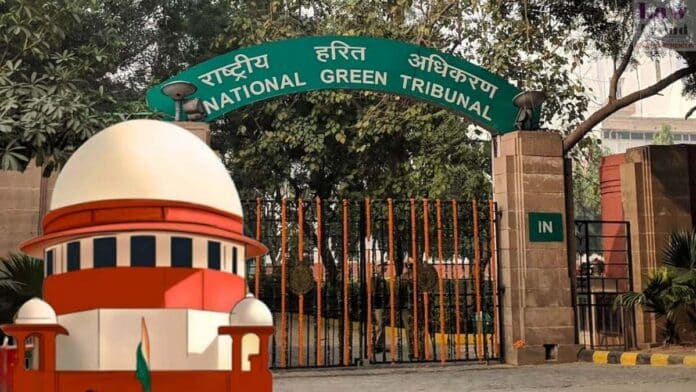The Supreme Court of India has held that the National Green Tribunal (NGT) should not direct the Enforcement Directorate (ED) to prosecute individuals under the Prevention of Money Laundering Act, 2002 (PMLA). A bench comprising CJI B. R. Gavai and Justice K. Vinod Chandran quashed such a direction while expressing “serious doubts about the jurisdiction
To Read More Please Subscribe to VIP Membership for Unlimited Access to All the Articles, Download Available Copies of Judgments/Order, Acess to Central/State Bare Acts, Advertisement Free Content, Access to More than 4000 Legal Drafts( Readymade Editable Formats of Suits, Petitions, Writs, Legal Notices, Divorce Petitions, 138 Notices, Bail Applications etc.) in Hindi and English.




